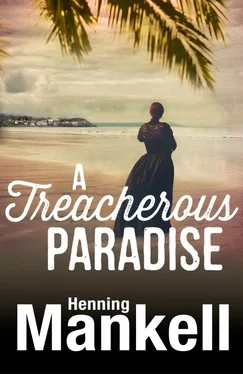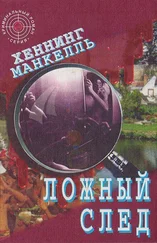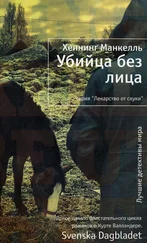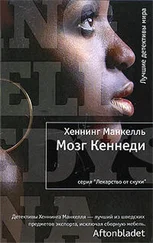Not until now. She slid her hand over the long row of silk skirts, dresses and suits. She settled on an oriental-style costume in green and red, with touches of golden embroidery. She put it on in front of the mirror. The blouse was low-cut and could be opened simply by unfastening a ribbon underneath the breast. She selected a circular tiara to match the clothes, and placed it on her hair. Then she slid a broad bracelet similar to the tiara on to her left arm.
Among the rings she also discovered brushes, powder and lipstick. She made up her eyes and painted her lips, put a pair of silk slippers on her feet, and was ready.
She looked at herself in the mirror and it struck her that the change in her appearance was much greater than she had expected. She was not Ana any longer, but a woman of oriental extraction. There was nothing left of Hanna Renström. Whoever she really was, she knew that she had transformed herself into a woman who would attract a lot of customers if she were to sit down on one of the red sofas and wait for a proposition.
She sat down on the bed. It would be some time yet before all the women had gathered.
The time eventually came. She went down the stairs and stopped by a half-open curtain that at night-time was closed in front of the opening to the inner courtyard.
The women were sitting around chatting as usual when she appeared from behind the curtain. Silence fell immediately. Ana could see that several of them didn’t recognize her at first, and as she had expected, none of the women commented on the change in her appearance. Nobody laughed or admired her beautiful clothes. They daren’t, Ana thought. Even if I have changed completely, I’m still first and foremost the white woman, nothing else.
She walked into the room.
Zé was sitting at the piano, tuning a single key deep down at the bass end of the keyboard. The guards had succeeded in not allowing any new customers in. A few sullen-looking and half-drunk sailors from a Norwegian whaling ship were staggering along towards one of the side streets where there was another establishment.
‘Are there any customers left?’ Ana asked Felicia.
‘Just a couple, asleep. They won’t wake up.’
‘Perhaps you’ve given them some of your magic medicine?’
Felicia smiled, but didn’t reply.
Picard had arrived. He had set up his large camera, hung the black cloth over it, and rearranged the furniture so that there was room for everybody in the picture.
Ana decided to begin with the group photograph. With luck it would create an atmosphere in the room that would make it easier for her afterwards to say everything it was necessary for her to say.
‘We’re going to take a photograph,’ she said, clapping her hands. ‘Everybody’s going to be on it, including Zé and the security guards. And not least Carlos, of course.’
There was immediately an air of excitement as they all moved into the places where they were directed by Picard. The women giggled and tittered, exchanged combs and little mirrors, adjusted one another’s clothes (which weren’t covering all that much of their bodies anyway). Eventually everybody was ready, with Ana in the middle, sitting in an armchair. Carlos had jumped up on to a pedestal which normally held a potted plant.
‘I want a serious picture,’ said Ana. ‘I want nobody to laugh, nobody to smile. Look serious, straight at the camera.’
Picard made the final adjustments, moving somebody a bit closer, somebody else a bit further away. Then he prepared the flash by scattering some magnesium powder on to a metal tray. He ducked underneath the black cloth with a burning matchstick in his hand. The magnesium flared up and the picture was taken.
He prepared another flash, ducked under the cloth again and took a second picture.
Afterwards, when Picard had left and gone back to his studio to develop the photographs and choose the one from which he needed to make fourteen copies, Ana assembled the women under the jacaranda tree. Zé had returned to the piano where he was examining the keys before beginning to polish them. Carlos was sitting on one of the red sofas, smacking his lips noisily as he ate an orange.
It seemed to Ana at that moment as if everything surrounding her was a sort of artificial idyll.
A treacherous paradise.
Just as Ana was about to speak, Zé raised his hands and began playing. For the first time he had stopped merely tuning the strings. It took a few moments for what had happened to sink in. She watched Zé’s hands in astonishment and listened to his playing. It was like a bolt from the blue in the brothel. After spending all that time tinkering with his piano, Zé now seemed to have reached the point when it was sufficiently in tune for him to play it. Everybody listened in silence. Ana felt the tears in her eyes. Zé knew exactly where each finger should be, and his wrists were moving smoothly despite the frayed cuffs of his shirt.
When he had finished the piece, he placed his hands on his knees and sat there in silence. Nobody spoke, nobody applauded. In the end Ana went up to him and put her hand on his shoulder.
‘That was lovely,’ she said. ‘I didn’t know you could play like that.’
‘It’s an old piano,’ said Zé. ‘It’s hard to tune it.’
‘How long have you spent tuning it?’
‘Six years. And now I’ll have to start all over again.’
‘I’ll buy you a new piano,’ said Ana. ‘A good piano. You won’t need to keep tuning it in order to play.’
Zé shook his head.
‘This the only piano I can play,’ he said quietly. ‘I’d get no pleasure out of a new instrument.’
Ana nodded. She thought she understood, even though she had just witnessed something that could well have been a miracle.
‘What was the piece you played?’ she asked.
‘It was written by a Polish man. His name is Frédéric.’
‘It was beautiful,’ said Ana.
Then she turned to face the others and started them off clapping. Zé stood up hesitantly and bowed, closed the lid, locked the piano, picked up his hat and left.
‘Where does he go to?’ Ana asked.
‘Nobody knows,’ said Felicia. ‘But he always comes back. The last time he played for us was on New Year’s Eve, 1899. As the century came to a close.’
Ana could see that everybody was looking at her. She told them the facts: she was about to leave them. The new owner, Nunez, had promised not to change anything for as long as the women now working in the brothel stayed on.
‘I came here by chance,’ she said in conclusion. ‘I was ill, and I thought in my innocence that this place was a hotel. And I was very well looked after. I might have been dead by now if it hadn’t been for the care you gave me. But now it’s time for me to move on. I shall leave here and go to Beira where I shall look for Isabel’s parents and tell them that Isabel is dead. I don’t know what will happen after that. All I do know is that I shan’t be coming back here.’
Ana then took the bundles of banknotes out of her handbag. Each of the women received the equivalent of five years’ earnings. But to her great surprise, none of the women displayed the slightest sign of gratitude, despite the fact that they had never seen anywhere near as much money as that in their lives before.
‘You don’t need to stay on here now,’ she said. ‘Evening after evening, night after night. You can start living with your families again.’
Ana had been standing up while she spoke. Now she sat down on the deep red plush chair they had placed for her under the jacaranda tree. Nobody spoke. Ana was used to this silence, and knew that in the end she would no doubt be forced to break it herself. She took one of the bundles of banknotes and tried to give it to Felicia — but Felicia declined to accept it and started talking again instead. She had obviously rehearsed her speech, as if everybody knew already what Ana was going to say.
Читать дальше












